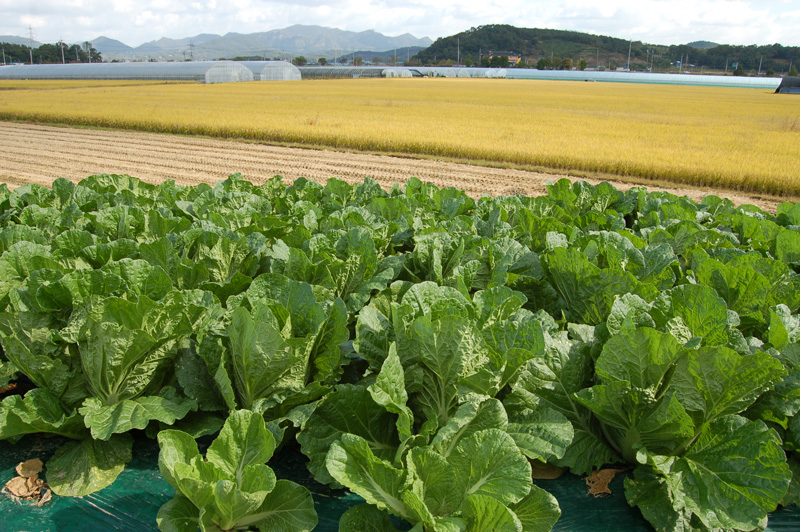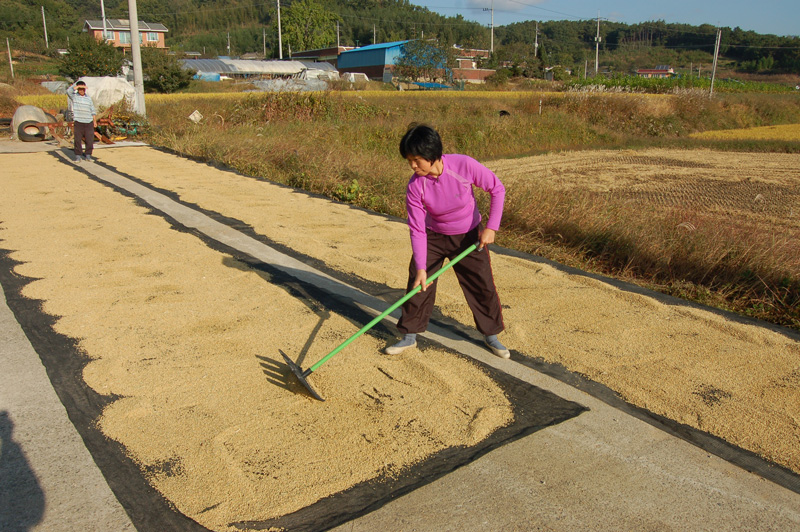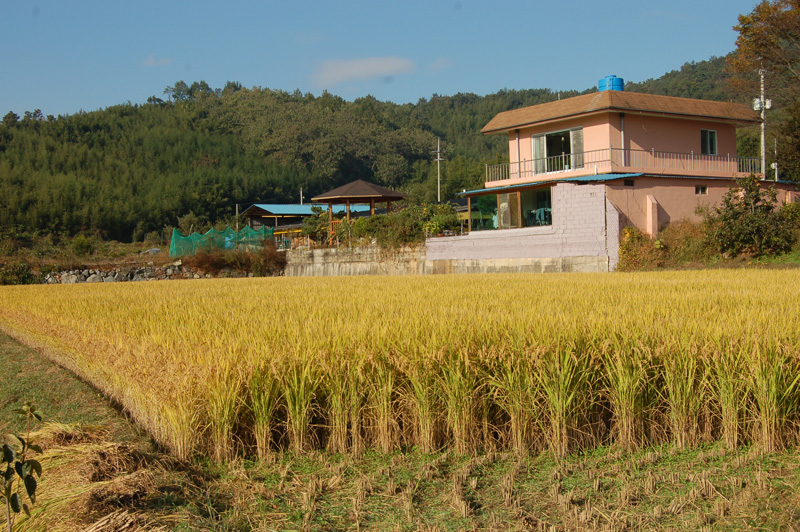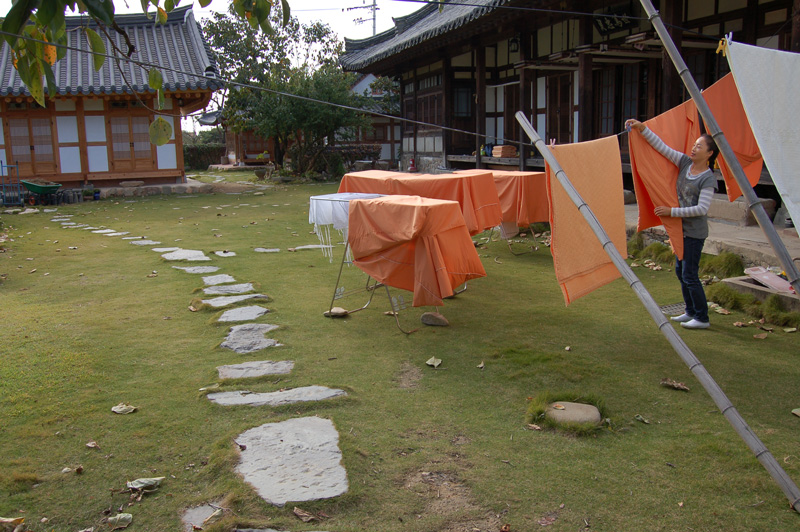
|
|
Slowing Down in Samjicheon Story & Photos by Bill Stephens
If you spend a week in Seoul, it's easy to see why the national branding slogan "Dynamic Korea" has replaced the "Land of Morning Calm." But travel three hours by train and then 30 minutes by bus and taxi to Samjicheon Village in the Damyang region, and you'll experience perhaps what was meant by the more traditional designation. Rice fields and traditional hanok-style homes provide a bucolic setting for this area in the southwestern tip of the peninsula that has long inspired poets. Samjicheon is an official "slow city," a designation made by an an organization based in Italy, where the Cittaslow movement started in 1999. The movement encourages nations around the world to preserve the cultural legacies of small towns and promote slower lifestyles, discouraging technology in favor of tradition. Samjicheon, located in South Jeolla province, was the first city in Asia to gain such status in 2007. Since then, four other towns in Korea have been named "slow city". Only 111 cities world wide share this distinction. During a recent visit to the town my fiancee and I, longtime residents of Los Angeles, could instantly understand the charm of such places. After lunching at a local restaurant known for its rice soup, we began wandering the walled lanes of Samjicheon-population 500- where the traditional hanok-style houses have sloped roofs and central courtyards. At one guest house, we found owner Kim Young Bun washing sheets in the courtyard. She and her husband moved here 10 years ago because he loves the hanok-style house, she said. Kim also said the area is attracting more tourists. Many enjoy the monthly "snail market," where they can buy produce from local gardens, learn to make traditional rice cakes and even go for an ox cart ride. Samjicheon is also known for local delicacies like rice-based taffies, which are made by melting rice syrup over a wood fire, and hangwa sweets made from rice, beans and sesame. For Professor Werner Sasse, beyond such delectable attractions, the town offered a quiet place to study and paint after he retired a few years ago. Sasse used to teach Korean studies in his native Germany, so he knows more about Damyang's history than perhaps the average South Korean. "Because Jeolla was historically outside Korea's main political action, the Jeolla personality is more free and easygoing," the scholar noted, referring to the overall character of this region in the south. In the 15th century, he explained, exiled scholars in Damyang invented Gasa poetry, which celebrates the country scholar's life. To this day, there is an active community of artists and poets who live in the area. But make no mistake: this is an agricultural region. Typical scenes on a Sunday morning: a man tending his strawberries inside a greenhouse while listening to Korean radio ballads, and a farming couple raking rice on the roadside. More than 50 percent of Damyang County residents, who number roughly 50,000, farm for a living. Even residents like Hwang Jung Hee, who may not be a commercial farmer, grows her own food. She was digging potatoes in front of her home when we met her. After some small talk, she invited us inside, serving us sweet potatoes and home-made mul kimchi. The 79-year-old told us all of her children, except for one who lives with her, moved to the "fast city," Seoul, but she won't budge. "I like living in a small town,"Hwang said. "The pace is slow. The water is good. All the neighbors know each other. "The friendly woman offered us a spare bedroom for free if we ever needed a place to stay. In the afternoon, we ventured just outside the slow city through graceful bamboos groves for which the Damming region is famous, but even more relaxing was a nearby riverside park where we joined other strollers and eventually reached a street lined with majestic Metasequoia trees. This last anecdote may help communicate the genuine charm of the area. When my fiancee and I returned to our minbak to check out in Samjicheon and pay our bill, the owner Mr. Guk was gone. We called him on his cell phone. "Just leave the money in your room, and I'll get it later," he told us without a hint of concern in his voice, and wished us happy travels back to Seoul.
|
||
|
|
||











